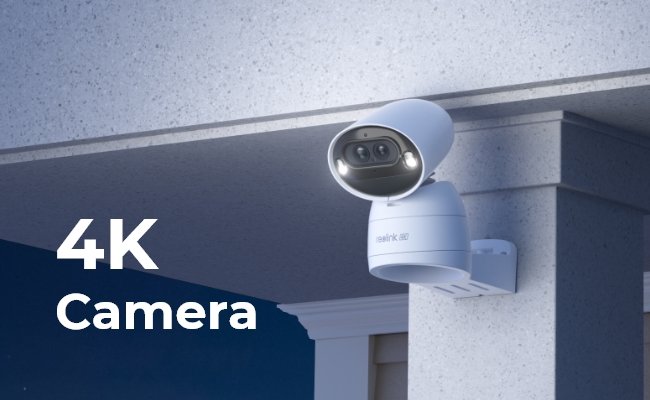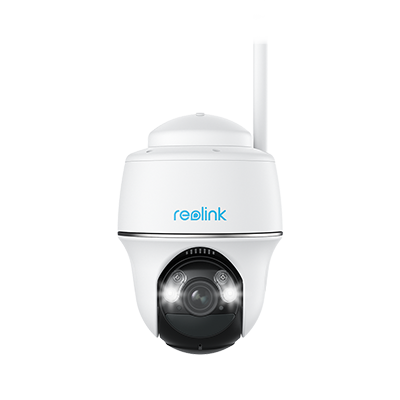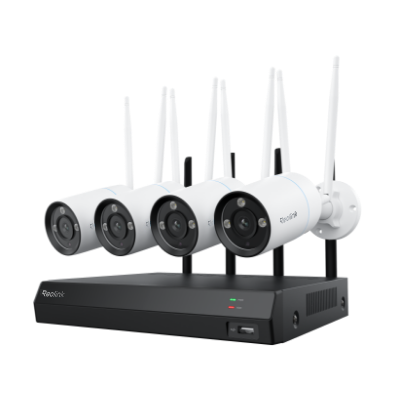4K Camera: Full Guide 2024

4K camera technology has taken the world by storm in recent years. With their ultra-high resolution and incredible image clarity, 4K cameras have become highly sought after by both professional and amateur photographers alike.
In this guide, we will provide a comprehensive overview of 4K camera technology, the types of 4K cameras available, their key features and benefits, and tips for choosing the right 4K camera for your needs.
What is a 4K Camera?
A 4K resolution camera is a camera capable of recording video at a resolution of 3840 x 2160 pixels, which adds up to approximately 8 megapixels per frame. This is four times the pixel resolution of Full HD 1080p cameras. The term "4K Ultra HD camera" comes from the approximate horizontal resolution of 4000 pixels.
While most 4K cameras can record video at 24, 25, or 30 frames per second (fps), high-end models boast even higher frame rates of 60 fps or more. This results in incredibly smooth, realistic footage.
Note: If you are curious about surveillance cameras with 4K resolution, check out our comprehensive guide on 4K security camera.
Types of 4K Cameras
With 4K technology becoming more accessible, there are now many types of cameras that offer 4K video recording and high-megapixel still images. Let's take a look at some of the most popular categories of 4K cameras.
4K Digital Camera
Digital cameras equipped with large image sensors can produce incredibly detailed 4K video and photos.
Within this category are mirrorless cameras and high-end point-and-shoot cameras from top brands like Sony 4K camera, Panasonic, Canon 4K camera, and Nikon. Many of their 4K mirrorless models have full-frame or APS-C sensors, while their point-and-shoot cameras feature 1-inch sensors.
4K DSLR Camera
The 4K video capabilities of today's DSLR video camera 4k (digital single lens reflex) have elevated them into a league of their own for multimedia content creators. Top camera manufacturers like Canon and Nikon offer high-end DSLR models that can capture gorgeous 4K footage at buttery smooth 60 fps.
With their large APS-C or full-frame sensors, interchangeable lenses, and manual controls, the 4K DSLR camera provides the most flexibility for professional videography and photography.
4K Drone Camera
Drone with camera 4K have enabled a whole new world of possibilities for aerial videography and photography. Leading consumer drone makers DJI and Autel routinely incorporate 1-inch CMOS sensors with 4K video recording and 12MP still images in their prosumer and professional models.
4K Action Camera
Action camera 4K like those made by GoPro and Insta360 uses wide-angle lenses and compact, ruggedized builds to capture immersive 4K point-of-view footage of adventures and extreme sports. Their small form factors allow them to be easily mounted on helmets, vehicles, equipment, and even the users themselves!
Understanding 4K Video Camera Technology
While the most basic 4K camera specifications include resolution and frame rate, there are several other technological factors that determine overall video quality. Here are some of the key technologies inside 4K video cameras to look for.
Sensor Size and Type
Larger camera sensors can capture more light information, resulting in improved image quality - especially in low-light conditions. Most best 4K video cameras have 1-inch or smaller sensors, while many mirrorless and DSLR 4K cameras boast APS-C, Micro Four Thirds, or full frame sensors for optimal performance.
Codec and Bit Rate
The codec dictates how your camera compresses video data. Efficient codecs like H.264 and H.265 maintain good image quality while reducing file sizes for easy editing, sharing, and storage. Some video camera 4K support more professional codecs like ProRes and XAVC, which preserve maximum detail at higher bit rates.
Higher Canon 4K video camera video bit rates reduce compression, retaining more detail and color information. Bit rates of 100 Mbps or higher are ideal for capturing the full benefits of 4K resolution.
Frame Rates
Standard 4K video frame rates are 24, 25, or 30 fps. However, many advanced 4K cameras offer 60, 120, or even 240 fps recordings.
At a 4K 60fps camera, the action footage is perfectly smooth and fluid. Higher rates allow incredible slow motion when footage is interpreted at standard frame rates. For 4K cameras, high frame rate support is a huge bonus.
Benefits of 4K Resolution in Cameras
Let's go over some of the major advantages the 4K Ultra HD camera provides:
- Enhanced Clarity and Finer Details: The leap from 1080p to 4K resolution makes a huge difference in how much visual information is captured in videos and photos.
- Flexibility in Post-Processing: 4K footage can be cropped significantly without degradation in post. Stabilization can be applied digitally with no loss of sharpness.
- Compatibility with High-End Devices: 4K TVs, monitors, and projectors fully leverage 4K footage to provide immersive viewing experiences with incredible sharpness and realism.
- Better Downsampling: Even if you produce 1080p content as a final product, capturing in 4K first provides major advantages.
How to Choose 4K Security Camera
In our daily lives, one of the most ubiquitous applications of 4K camera technology is in surveillance and security cameras. When selecting 4K security cameras, keep the following factors in mind:
- 4K Camera Connectivity: Surveillance cameras utilize PoE, WiFi, or 4G connectivity. PoE (power over Ethernet) offers the most reliable connection, while WiFi and 4G provide flexible wireless installation.
- Power Supply: Cameras can be powered by Ethernet, batteries, or solar panels. Consider the availability of wired power sources vs the need for remote standalone operation.
- Brand Reputation and Customer Support: Stick with recognizable brands known for quality. Also, evaluate after-sales support and warranty terms before purchasing.
- Smart Features: Look for useful capabilities like night vision, smart detection, facial recognition, automated alerts, and integration with home automation platforms.
Best 4K Camera for Surveillance Recommendation
Here are two great options if you are looking for 4K security and surveillance cameras:
Best Wireless 4K Video Surveillance Camera - Reolink Argus PT Ultra
The Reolink Argus PT Ultra is an excellent wire-free 4K security camera for broad outdoor coverage. It captures crisp, detailed 4K footage day and night thanks to its powerful image sensor. The fully wireless design offers flexible installation anywhere, while the built-in battery provides convenient charging via USB or solar ener. With weather resistance, color night vision, smart motion detection, and more, the Argus PT Ultra is a fantastic wireless 4K surveillance camera.
4k 100% Wire-Free PT Camera
4K 8MP Ultra HD; 5GHz/2.4GHz WiFi; Rechargeable Battery & Solar Powered; 355° Pan & 140° Tilt; IP65 Certified Weatherproof; Clear Night Vision; 2-Way Audio; 122° Wide Viewing Angle.
Best 4K Security Camera System - Reolink RLK12-800WB4
For a complete 4K multi-camera surveillance system with central monitoring, check out the RLK12-800WB4. This 12-channel kit comes with four 4K wireless cameras for superb image quality both live and recorded.
The NVR manages the cameras and stores footage on its built-in 2 TB hard drive. Intuitive desktop and mobile apps enable easy access and control. With powerful performance and reliability, it's a great 4K security camera system.
4K Security Kit with Next-Gen WiFi 6
4 pcs 4K Ultra HD Security Cameras; Dual-Band WiFi 6; 2TB HDD 12-Channel NVR for 24/7 Recording; Peron/Vehicle/Animal Detection; IP67 Weatherproof.
FAQs
What does 4K mean in a camera?
4K refers to an ultra-high resolution of approximately 4000 pixels horizontally, resulting in over 8 megapixels per video frame. This allows 4K cameras to capture more visual detail than lower resolution HD or 1080p cameras.
Are 4K cameras worth it?
For both amateur and professional videographers, 4K cameras are absolutely worth the investment. The exceptional clarity, flexibility in post-production, and future-proofing offered by 4K make it a must-have feature for modern cameras. As 4K screens become ubiquitous, 4K cameras will be even more essential.
Is 4K really better than 1080p?
Absolutely - the difference between 4K and 1080p is night and day! The 4X increase in pixels provides far more detail and sharpness. 4K content viewed on large screens is massively more immersive. Even on smaller screens, 4K delivers obvious improvements. Modern cameras should always opt for 4K over 1080p if possible.
Conclusion
4K resolution has transformed modern digital cameras with incredible detail and clarity. From mirrorless and DSLR cameras for photography enthusiasts to specialized devices like drones and action cams, 4K has become standard for capturing professional-quality videos and photos.
We've only scratched the surface of the 4K camera landscape here. If you're looking to purchase your first 4K camera, carefully evaluate your needs and budget, then explore the many options available from leading brands. Feel free to share your thoughts and questions on the 4K cameras below!
Search
Be in the Know
Security insights & offers right into your inbox


